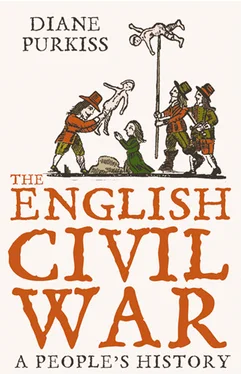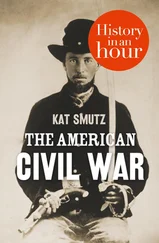It is also quite possible that Lucy – just like the rest of Pym’s followers, and a strong minority of the nation – was outraged by Charles’s behaviour. No Catholic, she disliked the influence exerted by Laud on the Church. Her personal attraction to Strafford may have been strong, but she may not necessarily have sided with him on questions of absolutism, and his fall and the king’s willingness to sign his death warrant may have done something to put her off the absolute power of monarchy, as well as forcing her to realize that it was not in fact absolute. This may not have been a matter of direct personal vengeance either. Lucy had just seen a great self-made man struck down by the king. To a woman who had spent years trying to advance herself and her family in the eyes of a monarch, this cannot have been very reassuring. It might have reminded her of her father’s fate, or even of the entire history of the Percys, a family struggling to maintain a powerful aristocratic position without monarchic interference, which had seen several members executed for treason. Strafford’s death confirmed in Lucy Hay an ideology of monarchy limited by strong Protestantism and aristocratic counsel, an ideology she was to adhere to throughout the Civil War years. And odd as it may have seemed, Pym and the saints offered a more rational path to that goal than did any of those remaining about the king.
Self-preservation, too, was always a central plank in Lucy’s motivation. If Lucy knew anything of Pym’s plans to impeach the queen, she may have become anxious that she would herself be implicated.
Strafford’s death was a warning that no one could escape by virtue of position or rank. It may have seemed sensible to have a foot in both camps. And since she was almost certainly not the only one who disclosed the king’s plans, it was sensible. Strafford’s fall from power was a warning. It might have looked like the beginning of the end for everyone in the king’s and queen’s immediate circle.
Ironically, too, if Lucy did send a message to Pym, it may suggest that he was more circumspect with her than others had been, for some historians think that Pym lured Charles into the rash invasion of the House, that the whole attempted arrest was a trap. If so, Pym may have been making use of Lucy, knowing only too well that she had a foot in both camps and an eye on the winning side. If Lucy was lurking in Pym’s camp to gather information, then he may have used her to leak unreliable information to the queen’s circle, even to bait the trap he was setting for the king. Is it significant that it was Henrietta’s urgings which sent the king to the House, her interests which prompted him to act so rashly? Perhaps Lucy Hay betrayed her friend the queen not by giving away her plans, but by unwittingly giving her false information. Who was using whom?
Somewhere, Pym and the other members hid while Charles and his men burst into the Commons. Rumour said that they took refuge in the Puritan stronghold of St Stephen’s Coleman Street, very near the Guildhall. It was ominous that the new state wrapped itself protectively in the folds of the church, ominous and predictive of what would become a Parliamentarian theocracy of sorts. They were able to enter the Guildhall the next day, to cheers.
These events left Charles and Henrietta thoroughly scared, and after a failed bid to persuade the London aldermen to give up the errant members, on 10 January 1642 they packed their bags and abandoned Whitehall for Hampton Court. It was Charles’s second disastrous mistake in under a week. The king and queen knew that when the House reconvened it might go on to impeach the queen as the one who had invited the ‘Jesuited papists’ who threatened the nation into the country in the first place. They had sensed the mood of London when Charles rode to the Tower the day after his disastrous invasion of the Commons. ‘Sir, let us have our liberties,’ cried someone in the crowd, ‘we desire no more.’ The Christmas holidays meant that London’s apprentices, always volatile, were available to demonstrate. On 6 January there was a panic in the City as vast crowds thronged public spaces; a fight broke out between the king’s supporters and demonstrators at Westminster Abbey, and Sir Richard Wiseman was killed. The demonstrators took up a collection to pay for Wiseman’s funeral, though, and the French ambassador commented on how calm the crowds were in comparison with crowds in Paris.
In the Guildhall it was the same. ‘Parliament, Privileges of Parliament’, shouted some. Others shouted back ‘God bless the king’. But there were not enough of them, and – with no military effort at all, without even a show of real opposition – Charles’s opponents achieved the tremendous victory of persuading him to vacate London.
In doing so, Charles lost prestige. He lost credibility as the inevitable, the unconsidered government. And he lost the Tower, with its mint and its armoury, and the London militia. Perhaps the capital had become peripheral to him. He had had dreams of a new London that would reflect the order and ceremonial he loved, but it had failed to materialize from the mongrel old city, crowded with unregulated houses of worryingly diverse and muddled shapes. Early in his reign, Charles had grandiose schemes for London; he issued proclamations to regulate new building, enforce the use of better materials, and impose some semblance of town planning. He wanted to rebuild and beautify Whitehall itself, but also the great cathedral of St Paul’s, so tumbledown and so given up to profane activities that Charles felt it was unworthy of his capital. He wanted to demolish the existing jerry-built medieval housing to forward these schemes. He wanted London to reflect his own ordered family, his well-regulated court. He disliked the continued residence in London of those who, he felt, should be in the provinces looking after their tenants; the gentry were strictly prohibited from neglecting their estates in the country and the duties they should be performing there by residing in London all year round.
The problem with all this was that the London corporation was unenthusiastic. And as often, when Charles couldn’t realize his fantasies, he turned his back. During the period of his personal rule, Whitehall had become just another palace, like Hampton and Oakley and Greenwich. He knew nothing first-hand of the vast activity that surrounded his court – the trade, law, business, finance, the sheer human pressure of what was in a few short years to become the greatest city in Europe. He had always avoided it. He hated the London crowds that reached out to him, hoping his touch would heal their sores. He had not visited the great shipyards at Poplar that had loomed over Anna Trapnel’s childhood, nor seen the first ships of the East India Company dropping anchor in Poplar docks laden with luxuries. He had seen only the luxuries. Now this city, invisible to Charles, was to be his downfall. He had refused to see it, and London, not the city to take a slight lightly, never forgave him.
Like all wars, the Civil War was expensive, and the money to pay Parliament’s army came from the public. London alone provided between a quarter and a third of all the money spent by Parliament. And yet at the same time business was down; with the court gone the trade in luxuries, which had been booming, collapsed. And with the king away, Parliament at once acted to alter the social fabric of the city. The theatres were closed, the traditional holidays abolished: this threw still more people out of work.
Not everyone was miserable as the conflict deepened. Woodturner Nehemiah Wallington was happy, because his London was a godly city once more. For him, all events were a rich source of moral lessons. This was a man who, when his house was burgled in August 1641, tried to see in it the correcting hand of God’s providence: ‘because the Lord doth see the world is ready to steal away my heart, therefore, he doth it in love to wean me from the world’. But Wallington, like other godly folk in London, lived in terror that his bounty of spiritual surroundings might be taken from him. He was also a workaholic who adjured himself to wake at 1 a.m. to write, and who decided to miss a spring expedition across the fields to Peckham with his wife and daughter in order to stay at home and worry about ‘the sadness of the times’.
Читать дальше












